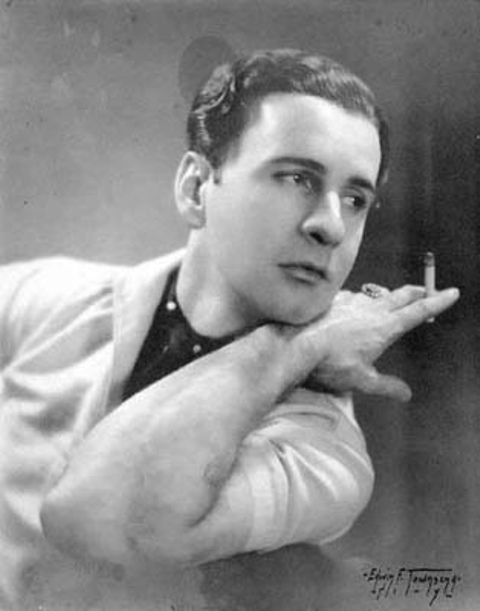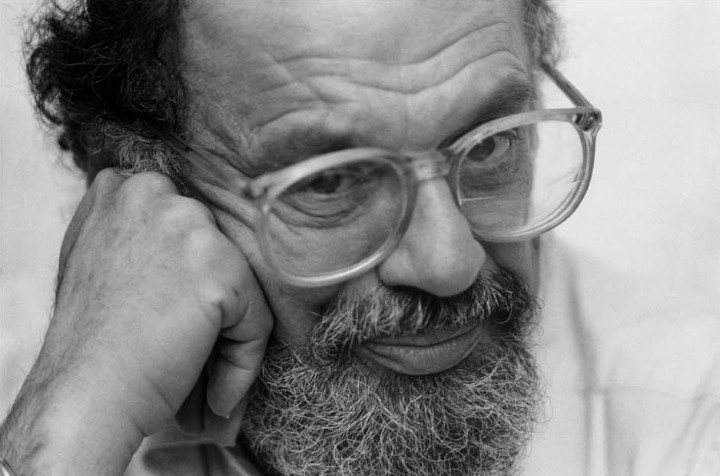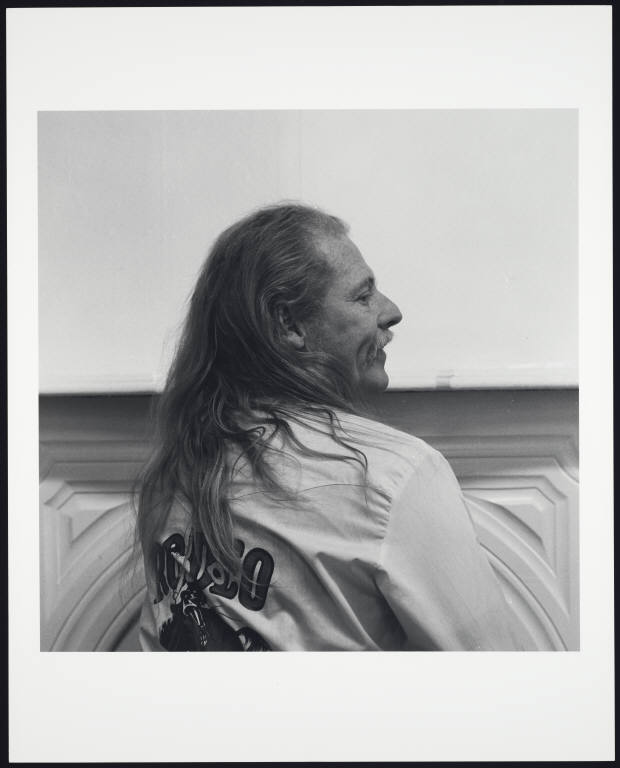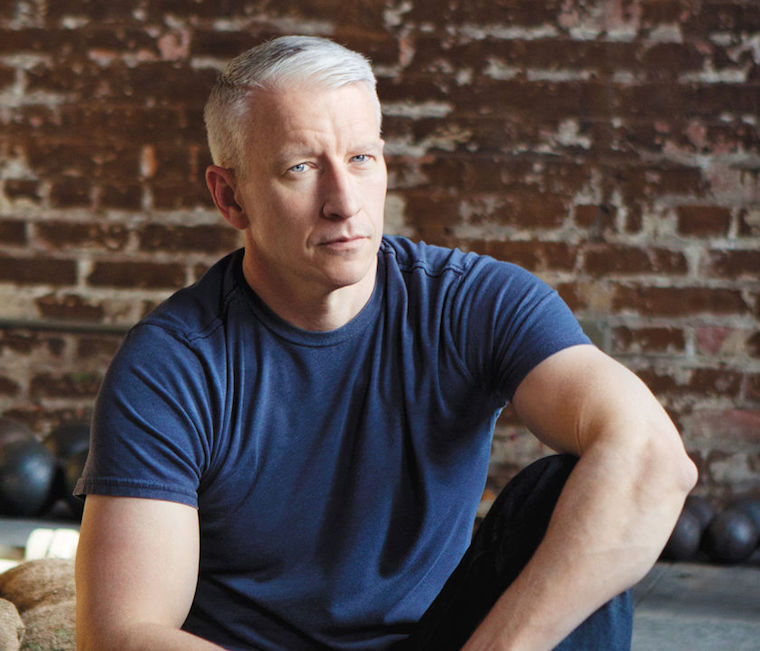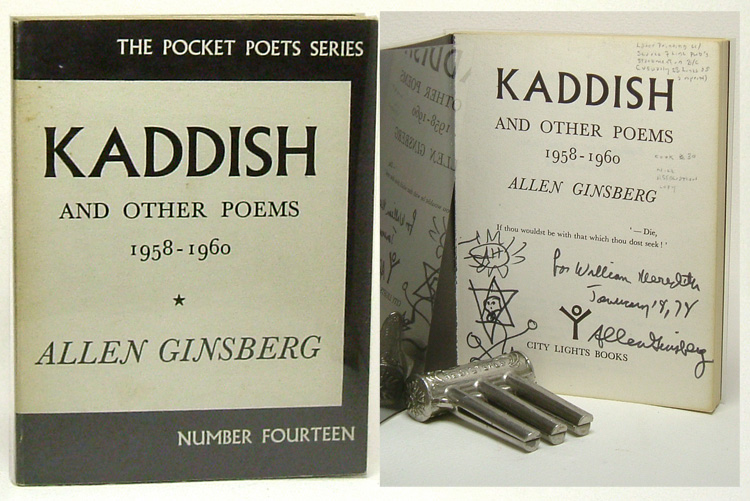|
Gay Wisdom for Daily Living brought to you by White Crane Institute ͏ ͏ ͏ ͏ ͏ ͏ ͏ ͏ ͏ ͏ ͏ ͏ ͏ ͏ ͏ ͏ ͏ ͏ ͏ ͏ ͏ ͏ ͏ ͏ ͏ ͏ ͏ ͏ ͏ ͏ ͏ ͏ ͏ ͏ ͏ ͏ ͏ ͏ ͏ ͏ ͏ ͏ ͏ ͏ ͏ ͏ ͏ ͏ ͏ ͏ ͏ ͏ ͏ ͏ ͏ ͏ ͏ ͏ ͏ ͏ ͏ ͏ ͏ ͏ ͏ ͏ ͏ ͏ ͏ ͏ ͏ ͏ ͏ ͏ ͏ ͏ ͏ ͏ ͏ ͏ ͏ ͏ ͏ ͏ ͏ ͏ ͏ ͏ ͏ ͏ ͏ ͏ ͏ ͏ ͏ ͏ ͏ ͏ ͏ ͏ ͏ ͏ ͏ ͏ ͏ ͏ ͏ ͏ ͏ ͏ ͏ ͏ ͏ ͏ ͏ ͏ ͏ ͏ ͏ ͏ ͏ ͏ ͏ ͏ ͏ ͏ ͏ ͏ ͏ ͏ ͏ ͏ ͏
|
|
||||
| This Day in Gay History | ||||
June 03Born 1902 - GEORGE QUAINTANCE, an American painter and illustrator was born on this date. Famous for his "idealized, strongly homoerotic" depictions of men in mid-20th-century physique magazines Quaintance used historical settings to justify the nudity or distance the subjects from modern society. His art featured idealized muscular, semi-nude or nude male figures; Wild West settings were a common motif. His artwork helped establish the stereotype of the "macho stud" who was also homosexual, leading him to be called a 'pioneer of an unabashedly Gay aesthetic'. He was an influence on many later homoerotic artists, such as Tom of Finland. Quaintance has been described as "obviously and actively homosexual", despite being closeted. At the age of eighteen he studied at the Arts Student League, where, as well as painting and drawing, he studied dance, which led to him meeting and briefly marrying Miriam Chester. In the 1930s, he became a hairstylist. His first art assignments were anonymous advertising work, but by 1934 he had begun to sell freelance cover illustrations to a variety of "spicy" pulp magazines, such as Gay French Life, Ginger, Movie Humor, Movie Merry Go-Round, Snappy Detective Mysteries, Snappy Stories, Stolen Sweets, and Tempting Tales. These were sold at burlesque halls as well as under-the-counter at discreet newsstands. These illustrations, which were clearly influenced by Enoch Bolles, were often signed "Geo. Quintana." In 1938, he returned home with his companion Victor Garcia, described as Quaintance's "model, life partner, and business associate", who was the subject of many of Quaintance's photographs in the 1940s. In 1951, Quaintance's art was used for the first cover of Physique Pictorial, edited by Bob Mizer of the Athletic Model Guid. In the early 1950s, Quaintance and Garcia moved to Rancho Siesta, which became the home of Studio Quaintance, a business venture based around Quaintance's artworks. In 1953, Quaintance completed a series of three paintings about a matador, modeled by Angel Avila, another of his lovers. By 1956, the business had become so successful that Quaintance could not keep up with the demand for his works. I recently purchased a book of Quaintance’s paintings and illustrations. Along with the confirmation notice I received a wonderful note about Quaintance from the seller who said, “The man was born near where I now live in a rural Virginia county some 90 miles west of Washington DC. When I first retired and moved here, there were still people alive who knew of his wealthy family. George couldn't wait to afford a ticket out of here. "The local Baptist Church has one of his paintings on the wall behind the baptismal tank. It is of Jesus and his disciples, one of whom looks remarkably like Quaintance. It's one of the Gayest looking wall paintings I've ever seen, but the Baptists don't seem to know or notice." Quaintance died of a heart attack in 1957. 1926 - ALLEN GINSBERG, American poet was born on this date (d. 1997); Prophetic angel poet, best known for the poem Howl (1956), celebrating his friends of the Beat Generation and attacking what he saw as the destructive forces of materialism and conformity in the United States at the time. The influence of Ginsberg’s poetry on an entire generation was enormous. How Ginsberg and the other “beats” appeared to readers in the 50’s, still wearing flats and dress shields and seven crinolines, is hard to reconstruct, much less imagine. Sixty-plus years later, when today’s youth make the “beats” look as if they were wearing flats, dress shields and seven crinolines, it makes one wonder who the poetry, the pronunciamentos will hold up in the future.
The trouble with telling the truth – and Ginsberg was one of the most directly honest writers who ever lived – is that the truth dates much more rapidly than the elegant lie that rarely shows its age. W.H. Auden, who really couldn’t stand Ginsberg’s poetry, once visited by the beat poet who had come to Oxford to pay him homage. Auden, to cut the visit short, showed Ginsberg around Christ Church Cathedral, and, in parting, was horrified when the young poet – with the utmost sincerity – knelt and kissed his trouser cuffs. Auden, who knew more than a little about the elegant lie, once wrote that “Sincerity always hits me something like sleep. I mean, if you try to get it too hard, you won’t.” Of the two poets, it will be interesting to know whose work will survive the longer. In 1954 in San Francisco, Ginsberg met Peter Orlovsky, (7 years his junior) with whom he fell in love and who remained his life-long lover, and with whom he eventually shared his interest in Tibetan Buddhism. Ginsberg won the National Book Award for his book The Fall of America. In 1993, the French Minister of Culture awarded him the medal of Chevalier des Arts et des Lettres (the Order of Arts and Letters). Allen Ginsberg gave what is thought to be his last reading at The Booksmith in San Francisco on December 16, 1996. He died on April 5, 1997, surrounded by family and friends in his East Village loft in New York City, succumbing to liver cancer via complications of hepatitis. He was 70 years old. Ginsberg continued to write through his final illness, with his last poem, "Things I'll Not Do (Nostalgias)," written on March 30. Ginsberg is buried in his family plot in Gomel Chesed Cemetery, one of a cluster of Jewish cemeteries at the corner of McClellan Street and Mt. Olivet Avenue near the city lines of Elizabeth and Newark, New Jersey. The family plot, located toward the western edge of the cemetery at the far end of the walk from the third gate along Mt. Olivet Avenue, is marked by a large Ginsberg and Litzky stone, and Ginsberg himself and each family member have smaller markers. Though the grave itself and the cemetery are neither picturesque nor otherwise notable (Ginsberg's grave is located near the rear fence of the flat cemetery, which is in the midst of an industrial area), and it has not become a major place of pilgrimage, there is a steady trickle of visitors as indicated by a handful of stones always on his marker and the occasional book or other item left by other poets and admirers. 1937 - PAUL MARIAH, American poet, born (d: 1996); Born Paul Jones, the name Mariah was chosen by Paul when he moved to San Francisco after having served a prison sentence for consensual sex with a man in Texas. His prison experiences were cited as crucial to his personal and literary development. He started Manroot Books and a literary magazine with the same title in 1969. A dozen issues of the magazine appeared, along with 30 monographs. His enterprise published many leading writers of the time, including notable editions of such major poets as Jack Spicer, James Broughton, Robert Peters, and Thom Gunn. Mariah also issued bilingual editions of Jean Cocteau and Jean Genet, and revived interest in the work of Robert Ingersoll, the 19th century prison reformer and social critic. His own poetry appeared in two collections, ``Personae Non Gratae'' in 1971 and ``This Light Will Spread'' in 1978. He was also prominent in the movement for prisoners' rights. This Light Will Spread: Selected Poems 1960-1975 by Paul Mariah Softcover, Manroot Pr, ISBN 0686257405 (0-686-25740-5) 1967 - ANDERSON COOPER, American reporter, born; An Emmy Award-winning American journalist, author and television personality. He works as the primary anchor of the CNN news show Anderson Cooper 360. He is the younger son of the writer Wyatt Emory Cooper and the artist, designer, writer, and heiress Gloria Vanderbilt, the "Poor Little Rich Girl" granddaughter of Cornelius Vanderbilt II of the prominent Vanderbilt family of New York. His public life contrasts deliberately with his mother's life spent in the spotlight of tabloid journalists and her publication of memoirs explicitly detailing her affairs with celebrities. He is Gay, though it took him long enough to come out. Typical of our celebrity-besotted society, in May 2007, Out magazine ranked him second among "The Most Powerful Gay Men and Women in America." He was awarded the 2001 GLAAD Media Award for Outstanding TV Journalism for "High School Hero," his 20/20 Downtown report on high school athlete Corey Johnson, the co-captain of a Massachusetts high school football team who was the first high school athlete in the nation to come out publicly while still enjoying the support of his teammates, parents and coaches. In July 2012, he gave Andrew Sullivan permission to publish an email that stated, in part: “I've begun to consider whether the unintended outcomes of maintaining my privacy outweigh personal and professional principle. It's become clear to me that by remaining silent on certain aspects of my personal life for so long, I have given some the mistaken impression that I am trying to hide something—something that makes me uncomfortable, ashamed or even afraid. This is distressing because it is simply not true. ... The fact is, I'm gay, always have been, always will be, and I couldn't be any more happy, comfortable with myself, and proud.” Cooper and his boyfriend, Gay bar owner Benjamin Maisani, have been together since 2009. In 2014, the couple purchased the Rye House, a historic estate in Connecticut. Apple CEO Tim Cook turned to Cooper for advice before he subsequently made the decision to publicly come out as Gay. Noteworthy Today's Gay Wisdom - TODAY'S GAY WISDOM Kaddish for Naomi Ginsberg 1894 - 1956 Strange now to think of you, gone without corsets & eyes, while I walk on the sunny pavement of Greenwich Village. downtown Manhattan, clear winter noon, and I’ve been up all night, talking, talking, reading the Kaddish aloud, listening to Ray Charles blues shout blind on the phonograph the rhythm the rhythm—and your memory in my head three years after—And read Adonais’ last triumphant stanzas aloud—wept, realizing how we suffer— And how Death is that remedy all singers dream of, sing, remember, prophesy as in the Hebrew Anthem, or the Buddhist Book of Answers—and my own imagination of a withered leaf—at dawn— Dreaming back thru life, Your time—and mine accelerating toward Apocalypse, the final moment—the flower burning in the Day—and what comes after, looking back on the mind itself that saw an American city a flash away, and the great dream of Me or China, or you and a phantom Russia, or a crumpled bed that never existed— like a poem in the dark—escaped back to Oblivion— No more to say, and nothing to weep for but the Beings in the Dream, trapped in its disappearance, sighing, screaming with it, buying and selling pieces of phantom, worshipping each other, worshipping the God included in it all—longing or inevitability?—while it lasts, a Vision—anything more? It leaps about me, as I go out and walk the street, look back over my shoulder, Seventh Avenue, the battlements of window office buildings shouldering each other high, under a cloud, tall as the sky an instant—and the sky above—an old blue place. or down the Avenue to the south, to—as I walk toward the Lower East Side—where you walked 50 years ago, little girl—from Russia, eating the first poisonous tomatoes of America—frightened on the dock— then struggling in the crowds of Orchard Street toward what?—toward Newark— toward candy store, first home-made sodas of the century, hand-churned ice cream in backroom on musty brownfloor boards— Toward education marriage nervous breakdown, operation, teaching school, and learning to be mad, in a dream—what is this life? Toward the Key in the window—and the great Key lays its head of light on top of Manhattan, and over the floor, and lays down on the sidewalk—in a single vast beam, moving, as I walk down First toward the Yiddish Theater—and the place of poverty you knew, and I know, but without caring now—Strange to have moved thru Paterson, and the West, and Europe and here again, with the cries of Spaniards now in the doorstoops doors and dark boys on the street, fire escapes old as you -Tho you’re not old now, that’s left here with me— Myself, anyhow, maybe as old as the universe—and I guess that dies with us—enough to cancel all that comes—What came is gone forever every time— That’s good! That leaves it open for no regret—no fear radiators, lacklove, torture even toothache in the end— Though while it comes it is a lion that eats the soul—and the lamb, the soul, in us, alas, offering itself in sacrifice to change’s fierce hunger—hair and teeth—and the roar of bonepain, skull bare, break rib, rot-skin, braintricked Implacability. Ai! ai! we do worse! We are in a fix! And you’re out, Death let you out, Death had the Mercy, you’re done with your century, done with God, done with the path thru it—Done with yourself at last—Pure—Back to the Babe dark before your Father, before us all—before the world— There, rest. No more suffering for you. I know where you’ve gone, it’s good. No more flowers in the summer fields of New York, no joy now, no more fear of Louis, and no more of his sweetness and glasses, his high school decades, debts, loves, frightened telephone calls, conception beds, relatives, hands— No more of sister Elanor,.—she gone before you—we kept it secret—you killed her—or she killed herself to bear with you—an arthritic heart—But Death’s killed you both—No matter— Nor your memory of your mother, 1915 tears in silent movies weeks and weeks—forgetting, aggrieve watching Marie Dressler address humanity, Chaplin dance in youth, or Boris Godunov, Chaliapin’s at the Met, hailing his voice of a weeping Czar—by standing room with Elanor & Max—watching also the Capitalists take seats in Orchestra, white furs, diamonds, with the YPSL’s hitch-hiking thru Pennsylvania, in black baggy gym skirts pants, photograph of 4 girls holding each other round the waste, and laughing eye, too coy, virginal solitude of 1920 all girls grown old, or dead, now, and that long hair in the grave—lucky to have husbands later— You made it—I came too—Eugene my brother before (still grieving now and will gream on to his last stiff hand, as he goes thru his cancer—or kill—later perhaps—soon he will think—) And it’s the last moment I remember, which I see them all, thru myself, now—tho not you I didn’t foresee what you felt—what more hideous gape of bad mouth came first—to you—and were you prepared? To go where? In that Dark—that—in that God? a radiance? A Lord in the Void? Like an eye in the black cloud in a dream? Adonoi at last, with you? Beyond my remembrance! Incapable to guess! Not merely the yellow skull in the grave, or a box of worm dust, and a stained ribbon—Deathshead with Halo? can you believe it? Is it only the sun that shines once for the mind, only the flash of existence, than none ever was? Nothing beyond what we have—what you had—that so pitiful—yet Triumph, to have been here, and changed, like a tree, broken, or flower—fed to the ground—but mad, with its petals, colored, thinking Great Universe, shaken, cut in the head, leaf stript, hid in an egg crate hospital, cloth wrapped, sore—freaked in the moon brain, Naughtless. No flower like that flower, which knew itself in the garden, and fought the knife—lost Cut down by an idiot Snowman’s icy—even in the Spring—strange ghost thought—some Death—Sharp icicle in his hand—crowned with old roses—a dog for his eyes—cock of a sweatshop—heart of electric irons. All the accumulations of life, that wear us out—clocks, bodies, consciousness, shoes, breasts—begotten sons—your Communism—‘Paranoia’ into hospitals. You once kicked Elanor in the leg, she died of heart failure later. You of stroke. Asleep? within a year, the two of you, sisters in death. Is Elanor happy? Max grieves alive in an office on Lower Broadway, lone large mustache over midnight Accountings, not sure. l His life passes—as he sees—and what does he doubt now? Still dream of making money, or that might have made money, hired nurse, had children, found even your Immortality, Naomi? I’ll see him soon. Now I’ve got to cut through—to talk to you—as I didn’t when you had a mouth. Forever. And we’re bound for that, Forever—like Emily Dickinson’s horses—headed to the End. They know the way—These Steeds—run faster than we think—it’s our own life they cross—and take with them. Magnificent, mourned no more, marred of heart, mind behind, married dreamed, mortal changed—Ass and face done with murder. In the world, given, flower maddened, made no Utopia, shut under pine, almed in Earth, balmed in Lone, Jehovah, accept. Nameless, One Faced, Forever beyond me, beginningless, endless, Father in death. Tho I am not there for this Prophecy, I am unmarried, I’m hymnless, I’m Heavenless, headless in blisshood I would still adore Thee, Heaven, after Death, only One blessed in Nothingness, not light or darkness, Dayless Eternity— Take this, this Psalm, from me, burst from my hand in a day, some of my Time, now given to Nothing—to praise Thee—But Death This is the end, the redemption from Wilderness, way for the Wonderer, House sought for All, black handkerchief washed clean by weeping—page beyond Psalm—Last change of mine and Naomi—to God’s perfect Darkness—Death, stay thy phantoms! | ||||
|
|8|O|8|O|8|O|8|O|8|O|8|O|8|O|8| Gay Wisdom for Daily Living from White Crane Institute "With the increasing commodification of gay news, views, and culture by powerful corporate interests, having a strong independent voice in our community is all the more important. White Crane is one of the last brave standouts in this bland new world... a triumph over the looming mediocrity of the mainstream Gay world." - Mark Thompson Exploring Gay Wisdom & Culture since 1989! |8|O|8|O|8|O|8|O|8|O|8|O|8|O|8| | ||||
|
|||||
|

